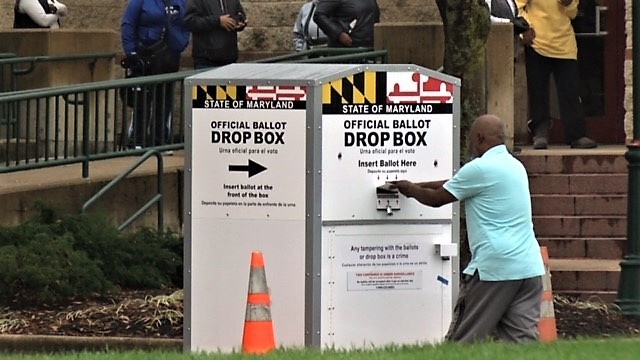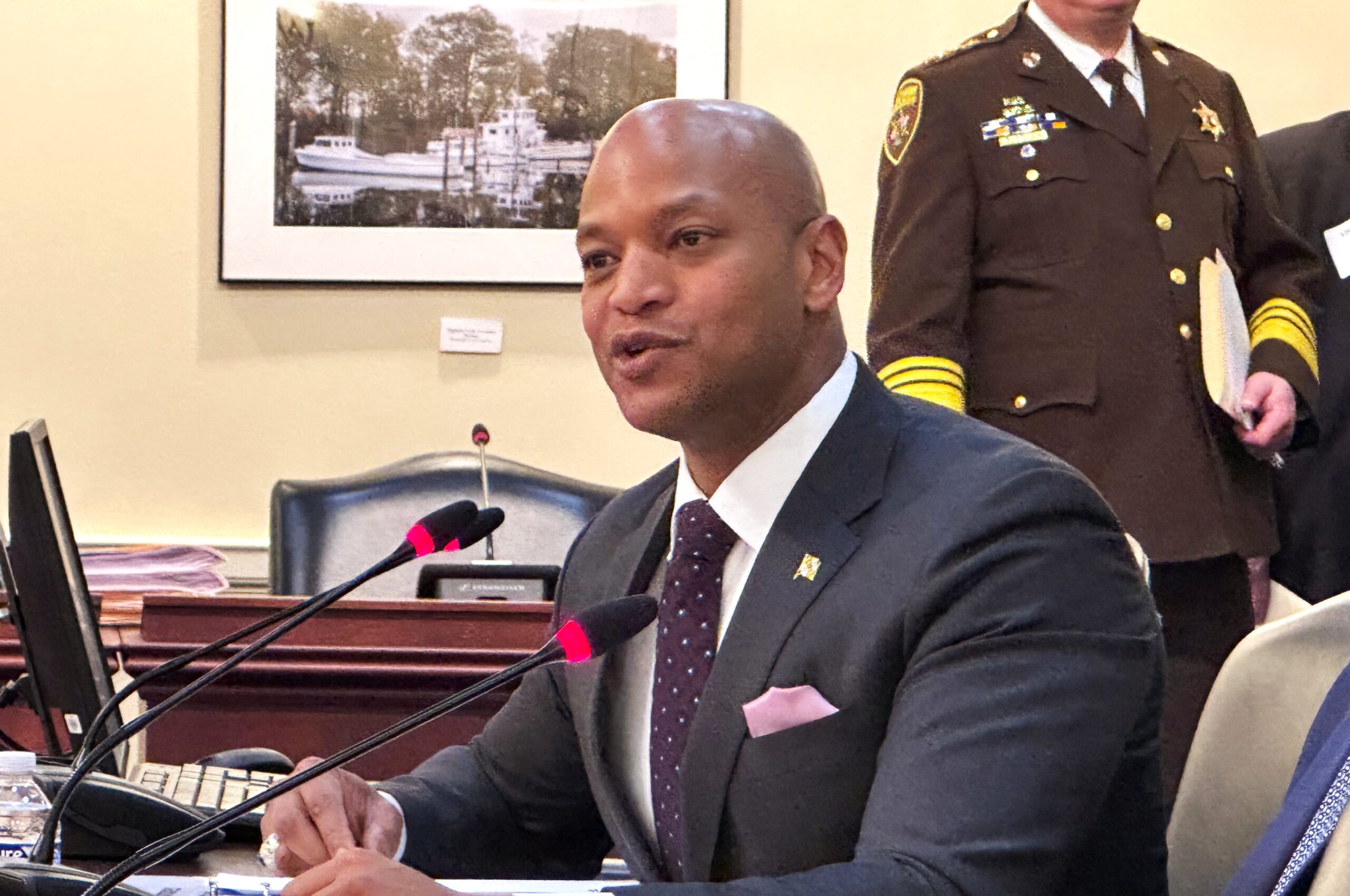House Rejects Republicans’ Amendments to Expanding Absentee Ballot List

Five Republican amendments to legislation that would let individuals choose to continue voting by mail were shot down in the House of Delegates on Thursday amid a debate that sometimes veered into unfounded claims of election fraud.
House Bill 1048, sponsored by Del. Jheanelle K. Wilkins (D-Montgomery), would allow registered voters to opt-in to an absentee ballot list so they wouldn’t have to reapply for a mail-in ballot before every statewide election.
The proposal is meant to address the overwhelming popularity of mail-in ballots during the socially distanced 2020 elections – and to lessen the burden on local boards of elections who process those applications.
The measure has broad support from voting rights groups, including Common Cause Maryland and the League of Women Voters, who say similar legislation should’ve been enacted long before the 2020 elections.
The bill also would set new requirements for upkeep of the absentee ballot list: Voters could be removed if they are removed from the state voter registration list, if any mail sent to them by election officials is returned as undeliverable, or if they don’t return an absentee ballot for two consecutive statewide general elections.
But on Thursday, House Republicans attempted to add more requirements to the legislation, including requiring voters to apply in-person, with a government-issued ID, to be placed on the list to automatically receive an absentee ballot.
Del. Brian A. Chisholm (R-Anne Arundel), who introduced the voter ID amendment, warned of “more fraud to come” without more stringent security measures for absentee ballots, and referenced the large number of Republicans who believe the 2020 election was stolen from former President Trump. Chisholm argued that his proposed amendment would build voter confidence in the state election system.
“All Americans who are eligible to vote should have that opportunity, but their ballots should not be stolen or diluted by voter fraud,” Chisholm said. “We should all stand together in unison against voter fraud.”
“Without asking for this ID, I fear that there’s more fraud to come,” Chisholm said.
The reference to voter fraud – an unfounded claim repeated by Trump after his loss in the 2020 election – drew a swift rebuttal from Del. C.T. Wilson (D-Charles), who said baseless allegations of voter fraud are “damaging” the country by undermining voter confidence.
“For anybody that believed, without evidence, that this election was stolen and there was systemic voter fraud, there’s no amendment that’s going to change their mind,” Wilson said.
“With zero evidence, we can’t keep walking down this path,” Wilson, an Army veteran, continued. “That’s the damaging part for my country that I fought for. It’s confusing some very nice people into thinking that they were tricked, that they were robbed.”
Del. Kirill Reznik (D-Montgomery) wrote on Twitter that “the level of Republican dishonesty on the Maryland House floor about supposed election fraud is just shameful.”
Del. Lauren Arikan (R-Harford) said the voter ID amendment shouldn’t be interpreted as a claim that there was widespread voter fraud in Maryland last year, but rather the result of a long-term push for such laws.
“This amendment has nothing to do specifically with anything that has occurred in only the last election cycle, but has everything to do with what people on my side of the aisle have been talking about for, I don’t know, 20 or 30 years,” Arikan said before reading off a list of countries with voter identification laws.
Wilkins noted that there hasn’t been any evidence of widespread voter fraud in Maryland, even after the use of absentee ballots soared due to the pandemic. But Republicans raised concerns about reports of mail-in ballots being incorrectly delivered during the 2020 primary election, for which every registered voter was sent a ballot.
Del. Susan W. Krebs (R-Carroll) said she received a ballot for her daughter, who hasn’t lived in the state for more than a decade. She put forward an amendment that would’ve set up additional procedures for election officials to mark voters as “inactive,” since the state currently maintains a list based only on mail being returned as “undeliverable.” That proposal was voted down because Wilkins’ bill contains provisions for removing inactive voters from the absentee ballot list.
Another amendment by Krebs would have required that all communications and ballots be sent to voters via mail, and not electronically delivered through email or text. It also would have required state election officials to study the security of electronically delivered ballots for future use. That proposal was rejected in a 43-89 vote.
Two amendments from Del. Mark N. Fisher (R-Calvert) were aimed at preventing “ballot harvesting,” or the mass collection and casting of ballots. Those proposals were voted down after Del. Anne R. Kaiser (D-Montgomery County) pointed out the practice is already illegal in Maryland.
Wilkins’ bill subsequently received preliminary approval in the House, with a final vote possible as early as Friday.
The bill differs from other proposed reforms, which would feature automatic mail-in ballot delivery to register voters. Two House bills, one sponsored by Del. Julian Ivey (D-Prince George’s) and Del. Shaneka T. Henson (D-Anne Arundel), and the other sponsored by Del. Jon S. Cardin (D-Baltimore County) would automatically send absentee ballots to all registered voters.




 Creative Commons Attribution
Creative Commons Attribution